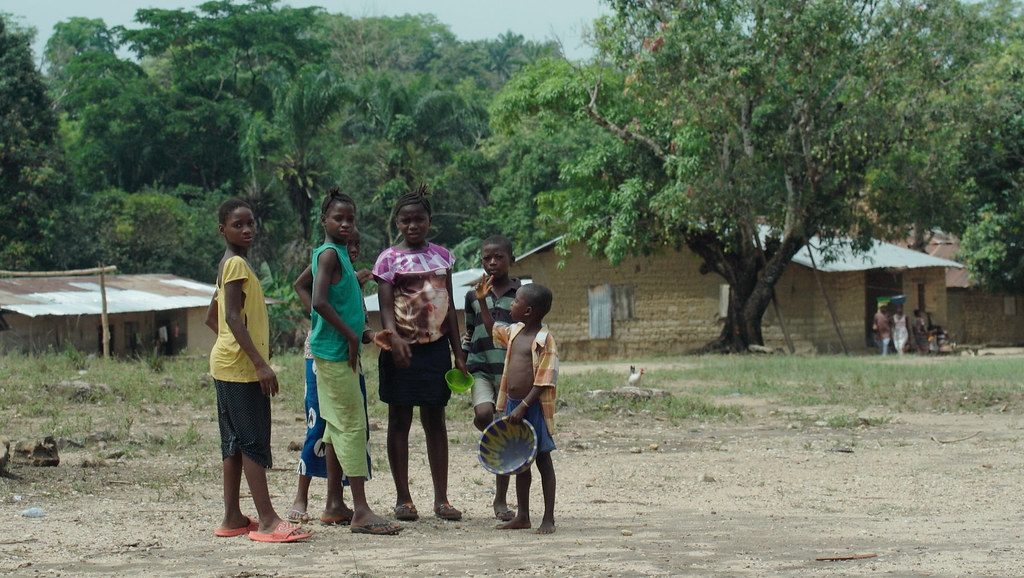A new seven-year research programme, funded by the Department for International Development and involving Bath's Centre for Development Studies researchers, has been announced which will focus on the role and impact of children within agriculture in Africa.
Estimates suggest that there are 152 million child labourers worldwide, with around 70% working in the agricultural sector. The rate of child labour in Africa is the highest of all regions in the world, with the continent’s share of child labour globally increasing from 34.2% in 2012 to 52.4% in 2016.
To date however, aside from anecdotal evidence, there has been little evidence about the impact this has on children, or the harms they might have to endure as a consequence.
Addressing child labour is central to the UN Agenda 2030 commitment to ‘leave no one behind’, and to meeting the Sustainable Development Goals 8.7 commitment to eliminate child labour by 2025. To achieve these goals, action is urgently needed to improve understanding and scale-up effective interventions.
These issues will be central to Action on Children’s Harmful Work in African Agriculture (ACHA) a new, seven-year, £10m research programme which will be led by the Institute of Development Studies at Sussex but will also involve the University of Bath, African Rights Initiative International, University of Bristol, University for Development Studies, Ghana, University of Ghana and the University of Sussex.
Funded through the UK’s Department for International Development, the project will build new evidence on the forms, drivers, and experiences of harmful children’s work in African agriculture, and interventions that are effective in preventing the harm that can arise in the course of children’s work.
As African smallholder farmers, pastoralists, and fishers are increasingly being integrated into a global agri-food value chain, harmful children’s work represents a major reputational risk for agri-businesses, many of which are now facing increasing consumer demand in the UK for ethical produce with a traceable origin. The presence of harmful children’s work in agri-food systems is also a potential reputational risk to donors like DFID who support commercialisation through its programme of ‘stepping up’ in agriculture.
ACHA will initially work in Ghana with a focus on cocoa, inland fisheries and vegetables, to explore three value chains that connect directly with the UK consumer. Work will then expand to include other countries and commodities. The approach taken will develop a more nuanced understanding of harm and harmful work and will put emphasis on children’s own understandings and experience of both work and harmful work in agriculture.
Lead researcher from Bath, Dr Roy Maconachie from the Department of Social & Policy Sciences whose research in West Africa has included documenting the lives of female cocoa farmers in Ghana, explained: “We are thrilled to be playing a major role in this important collaborative project with international partners. To date, so many initiatives designed to address child labour in sub-Saharan Africa have had limited success, and there is often a disconnect between well-intentioned policies and the local realities that play out on the ground. A more nuanced understanding of what constitutes harmful children’s work is needed, and this seven-year project will provide a fantastic opportunity to carry out some important new research that places children’s understanding and experiences at the centre of the analysis.
“In the process, the research should provide new possibilities for shaping child labour policies and ensuring that they are more aligned with pro-poor approaches to rural development. It will also provide the ideal foundation to strengthen links with colleagues at IDS and Bristol, and to build exciting new external partnerships across Africa.”
Co-investigator Dr Neil Howard, Prize Fellow in Social & Policy Sciences, added: “This project is a huge opportunity to bring the best of child-centred research to bear on child labour policy-making. Historically, child labour policy has had a tendency to be top-down and heavy-handed, often with negative consequences for children and their families. This project aims to address this, putting the perspectives of children front and centre and working to fill critical political and theoretical gaps – for example, around what constitutes harm in any given context and thus what can be done to prevent or protect against it. The collaboration at the heart of this project brings together researchers from Bath, Bristol and IDS, as well as colleagues and civil society actors from across Africa. It’s an exciting thing to be part of, and the timing is ideal given that the clock is ticking towards the SDGs.”
Professor Sarah White, President of the UK Development Studies Association and member of Bath’s Centre for Development Studies further commented: “While it is easy to condemn child labour from an international perspective, it is vital to understand how children and their families come to make choices that may result in their harm, as they are caught up in the expansion of global capitalism. It is great to see that this project has made this issue so central. The partnership between African researchers and activists and UK-based researchers also has important potential for strengthening global capacity to combat harms through children’s agricultural work.”
The ACHA programme will build on a growing body of research that IDS is undertaking on similar issues. This includes the Agricultural Policy Research in Africa consortium (APRA) and the Child Labour: Action-Research-Innovation in South and South-Eastern Asia (CLARISSA).
For the University of Bath, the project will provide an important interdisciplinary platform for development researchers to focus on an urgent area of policy development, creating new, sustainable partnerships with UK and African universities and agencies in the process.

